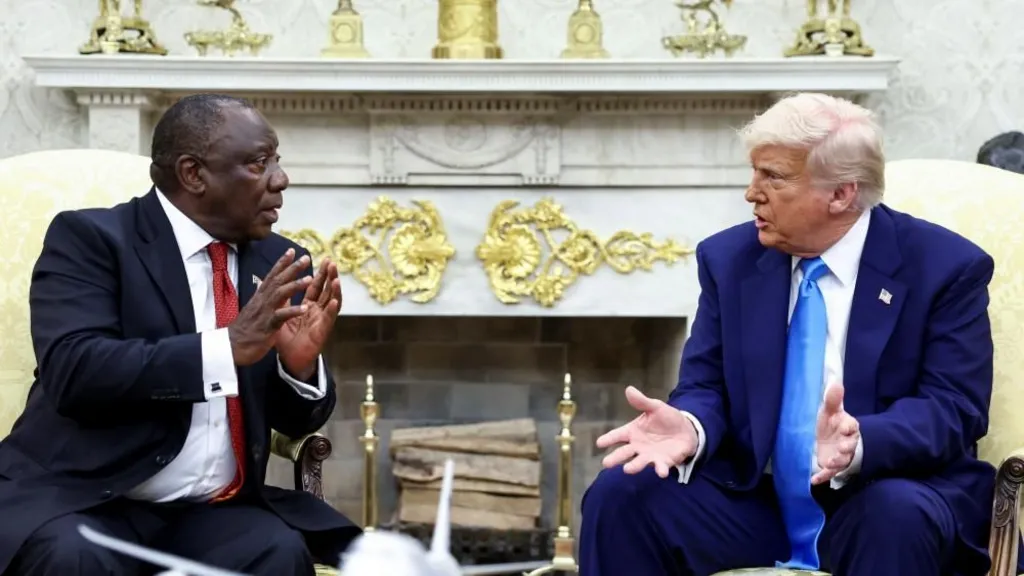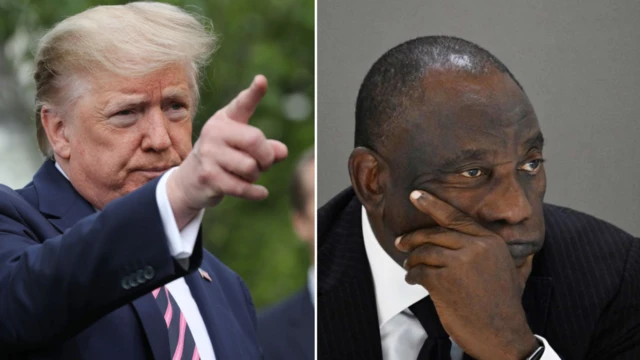South Africa is facing a potential economic storm after President Donald Trump announced that all South African imports to the United States would be subjected to a 30% tariff starting August 1, 2025. The decision threatens South Africa’s crucial trade access under the African Growth and Opportunity Act (AGOA), raising fears of job losses and declining export revenues in key sectors like agriculture, automotive, and textiles.
The announcement, confirmed via letters sent to South Africa and 13 other nations, marks a significant escalation in Trump’s global tariff campaign. His justification centered on what he described as “long-term, and very persistent, trade deficits engendered by South Africa’s tariff, and non-tariff, policies and trade barriers.” He made it clear that the new duties would be separate from existing sectoral tariffs and warned that any retaliatory moves by South Africa would lead to further increases.
“If you wish to open your heretofore closed trading markets to the United States, and eliminate your tariff and non-tariff policies and trade barriers, we will, perhaps, consider an adjustment to this letter.”
President Donald Trump
South Africa’s President Cyril Ramaphosa swiftly responded, questioning the logic behind the tariff increase. “This 30% tariff is based on a particular interpretation of the balance of trade between South Africa and the United States,” he said, pointing out that over half of US goods entering South Africa are not taxed, and the average tariff on others is 7.6%.
Ramaphosa added that South Africa would continue its diplomatic efforts “to ensure a more balanced and mutually beneficial trade relationship” with the US. Talks between trade negotiators from both countries remain ongoing.
Reforms Urgently Required In South Africa
Agriculture Minister John Steenhuisen echoed the concern in Parliament, stating that Trump’s action effectively signals the collapse of AGOA access for South Africa. “More than ever, it highlights the need for urgent reform in South Africa so we can ensure our economy meets the requirements of our trading partners around the world,” he said.
South Africa had already experienced a temporary reprieve in April when Trump initially announced the 30% tariff under his global “reciprocal” trade strategy, only to suspend its implementation for 90 days. That deadline was extended again in July, but the August date now appears firm.
Regarding whether the August 1 deadline was final, Trump said: “I would say firm, but not 100% firm. If they call up and they say we’d like to do something a different way, we’re going to be open to that.”
South Africa is the only sub-Saharan African nation singled out in Trump’s tariff move, a decision that analysts say underscores strained diplomatic relations. Since Trump’s return to office, he has stopped all aid to South Africa, accusing the government of discrimination against the white minority, an allegation that has been repeatedly denied by Pretoria.
Ramaphosa met Trump in May in an attempt to ease tensions, but sources say Trump used the opportunity to confront him with “a series of contested claims about the killing of white farmers.”

The latest tariffs now threaten to derail years of trade progress between the two nations. While South Africa continues to pursue dialogue, the cost of delay could be steep. The Ongoing AGOA benefits have supported thousands of jobs in South Africa’s export sectors and helped attract foreign investment.
Analysts warn that unless a breakthrough is reached, the 30% tariff could trigger a sharp contraction in exports to the US. Industry leaders have urged the government to accelerate reforms and engage more aggressively in negotiations to preserve South Africa’s global market access.
READ ALSO: Lands Minister Charges GoldBod Task Force To Protect Ghana’s Wealth



















